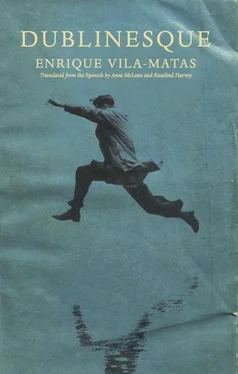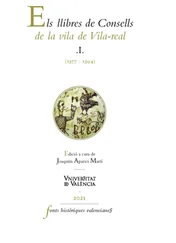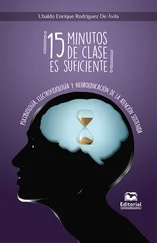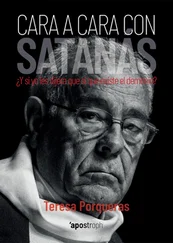From the fifties, that time linked to the period of his childhood, he still retains — directly inherited from his father, although much deformed and hidden by his shyness and also by his leftist tendencies and his quite rigorous intellectual veneer — a powerful fascination with the “American way of life.” What’s more, he never forgets that if there is one place where he might one day find happiness, this place is New York. In fact, on the two occasions he’s been there, he came very close to it. This conviction is not at all unconnected to a recurring dream that pursued him for a while. In the dream, everything was as it had been when he used to play soccer eternally alone as a child, out on the family patio of the apartment on Aribau, imagining he was both the visiting and the home team at the same time. The patio was identical to the one at his parents’ apartment, and the general atmosphere of desolation, characteristic of the post-war years, was also similar to the one back then. Everything was the same in the dream, apart from the fact that the gray apartment buildings overlooking the patio were replaced by skyscrapers from New York. This New York setting gave him a feeling of being at the center of the world, and transmitted a special emotion to him — the same one he’d later recognize when he dreamt of being at the center of the world on his way out of a pub in Dublin — and the warm sense of experiencing a moment of intense happiness.
The dream always ended up being a strange one about happiness in New York, a dream about a perfect moment at the center of the world, a moment he sometimes related to these lines by Idea Vilariño:
It was a moment
A moment
At the center of the world.
Things being as they are, it isn’t at all strange that he started to suspect the recurring dream contained a message telling him how a great, thrilling moment of happiness and extraordinary enthusiasm for the things of this world could only be awaiting him in New York.
One day, already past the age of forty, he was invited to a global conference of publishers in this city he had never set foot in, and naturally the first thing he thought was that he was finally going to travel to the very center of his dream. After the long and tedious flight, he arrived in New York as the day was drawing to a close. He was amazed at once by the great physical extent of American spaces. A taxi sent by the organization dropped him at the hotel, and once in his room, he watched in fascination how the skyscrapers gradually lit up as night fell. He felt deeply uneasy, expectant. He spoke on the phone to Celia, in Barcelona. Afterward, he got in touch with the people who had invited him to the city, and arranged to meet them the following day. Then, he busied himself with his dream. I’m at the center of the world, he thought. And looking out at the skyscrapers, he sat and waited for the sensations of enthusiasm, of emotion, of fulfilment, of happiness. It became clear that the wait, however, was just a wait, nothing more. A straightforward wait, with no surprises, with no enthusiasm at all. The more he looked at the skyscrapers in search of a certain kind of intensity, the clearer it became that he wasn’t going to feel any special sensation whatsoever. Everything in his life was still the same, nothing was happening that might seem different or intense. He found himself inside his own dream, and at the same time the dream was real. But that was all.
Even so, he persevered. He looked out at the street again and again, attempting unsuccessfully to feel happy while surrounded by skyscrapers, until he realized it was absurd to behave like the people Proust spoke of: “people who set out on a journey to see with their own eyes some city they’ve always longed to visit, and imagine they can taste in reality what has charmed their fancy.”
When he realized it was useless to carry on waiting to be inside that dream, he decided to go to bed. Tired from the journey, he fell asleep in no time. He dreamed then that he was a child in Barcelona playing soccer on a patio in New York. Total bliss. He had never felt so ebullient in his life. He discovered that the spirit of the dream, in contrast to what he had thought, was not the city, but the child playing. And he’d had to go to New York to find this out.
Today it’s raining less than yesterday and Barcelona is more visible through the window. Riba thinks about it: no matter what, at nearly sixty, wherever one looks, one has already been there.
Then he corrects himself and thinks almost the opposite: nothing tells us where we are and each moment is a place we have never been. He oscillates between feeling dejected and excited. Suddenly, he’s only interested in how he has managed to bring about this sort of rare calm, this new calmness he seems to be treating with the same level of interest he used to treat new manuscripts that seemed promising.
In the background, on the radio he has just turned on, a Billie Holiday song is playing, melancholy and drowsy, infinitely slowly, while he wonders if one day he’ll be able to think like his admired Vilém Vok used to when he reflected on those who lived in a dreamworld and then returned unscathed from their long travels.
New York’s beauty and greatness lie in the fact that each one of us carries a story that turns immediately into a New York story. Each one of us is able to add a layer to the city, conscious of the fact that it is in New York where the synthesis between a local story and a universal story can be found [Vilém Vok, The Center ].
He has always been a passionate reader of Vok, although he never managed to publish him due to an absurd misunderstanding he would rather not even remember now. But there was a time when he had an almost ferocious desire to have Vok in his catalog.
With each day that passes, the thought of New York makes him feel more enthusiastic. Under its spell he feels capable of anything. But his daily life doesn’t correspond well to his dreams. In this he is not exactly different from most mortals. He struggles along with his local Barcelona story that, when possible, turns from a private performance, into a universal, New York one.
Without New York as a myth and final dream, his life would be much harder. Even Dublin seems like just a stopover on the way to New York. Now, after having summoned up his imagination, he walks away from the window in quite a good mood and goes to the kitchen to drink a second cappuccino, and shortly afterward, goes back to the computer, where the search engine offers him thirty thousand results in Spanish for Dubliners , James Joyce’s book of short stories. He read it a long time ago, and re-read it years later, and still remembers many details, but he’s forgotten, for example, the name of the bridge in Dublin cited in the great story “The Dead”; the bridge on which, if he’s not mistaken, one always sees a white horse.
He feels wrapped up in a stimulating atmosphere of preparations for his trip to Dublin. Joyce’s book is helping him to open up to other voices and environments. He realizes that, if he wants to verify the name of the bridge, he will have to choose between flicking through the book — that is, remaining, heroically, in the Gutenberg age — or else surfing the net and entering the digital world. For a few moments, he feels he’s right in the middle of the imaginary bridge linking the two epochs. And then he thinks in this case it’d be faster to look at the book, as he has it there, in his study. He leaves the computer again and rescues an old copy of Dubliners from the bookshelves. Celia bought it in August 1972 from Flynn bookshop, in Palma de Mallorca. Back then, he didn’t know her. Possibly Celia read about the white horse appearing in “The Dead” before he did.
Читать дальше












